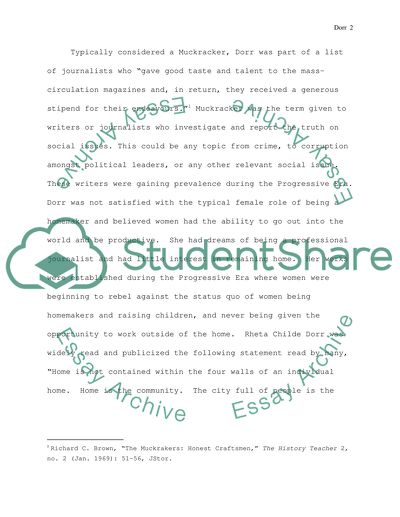Cite this document
(“Rheta Childe Dorr Research Paper Example | Topics and Well Written Essays - 2000 words”, n.d.)
Retrieved from https://studentshare.org/family-consumer-science/1419181-rheta-childe-dorr
Retrieved from https://studentshare.org/family-consumer-science/1419181-rheta-childe-dorr
(Rheta Childe Dorr Research Paper Example | Topics and Well Written Essays - 2000 Words)
https://studentshare.org/family-consumer-science/1419181-rheta-childe-dorr.
https://studentshare.org/family-consumer-science/1419181-rheta-childe-dorr.
“Rheta Childe Dorr Research Paper Example | Topics and Well Written Essays - 2000 Words”, n.d. https://studentshare.org/family-consumer-science/1419181-rheta-childe-dorr.


